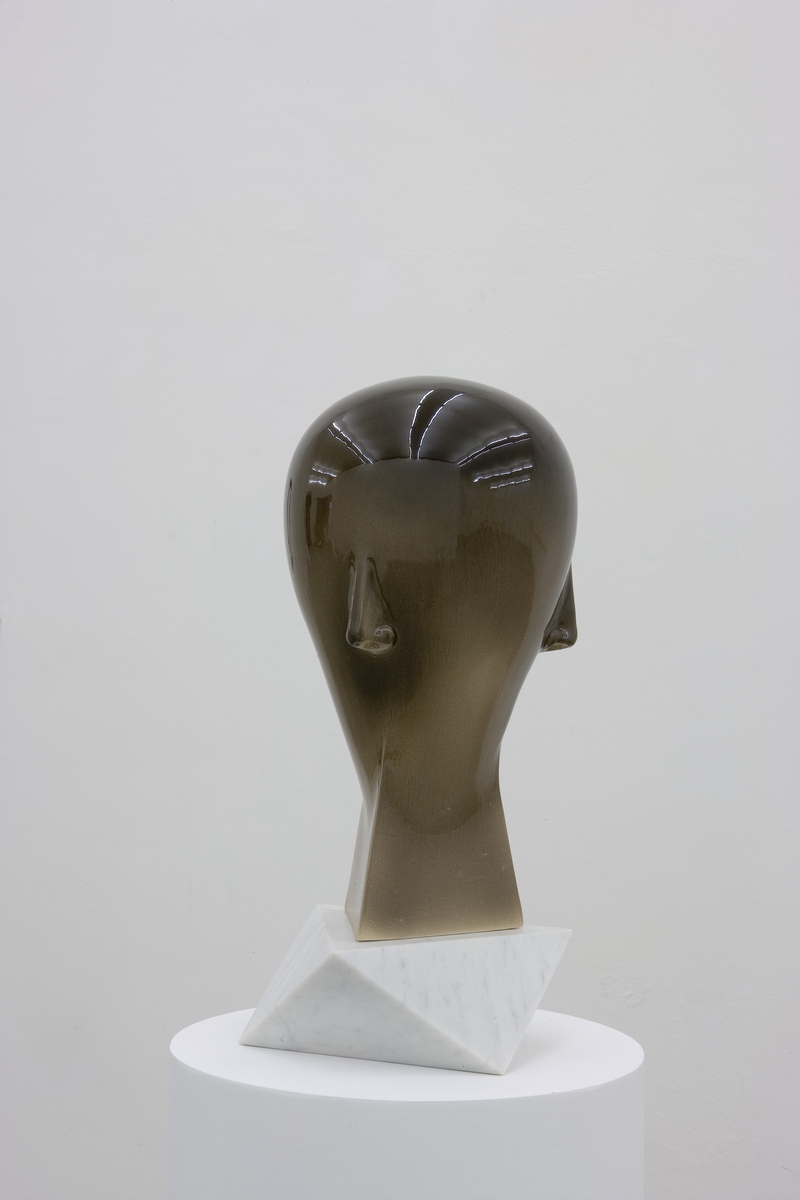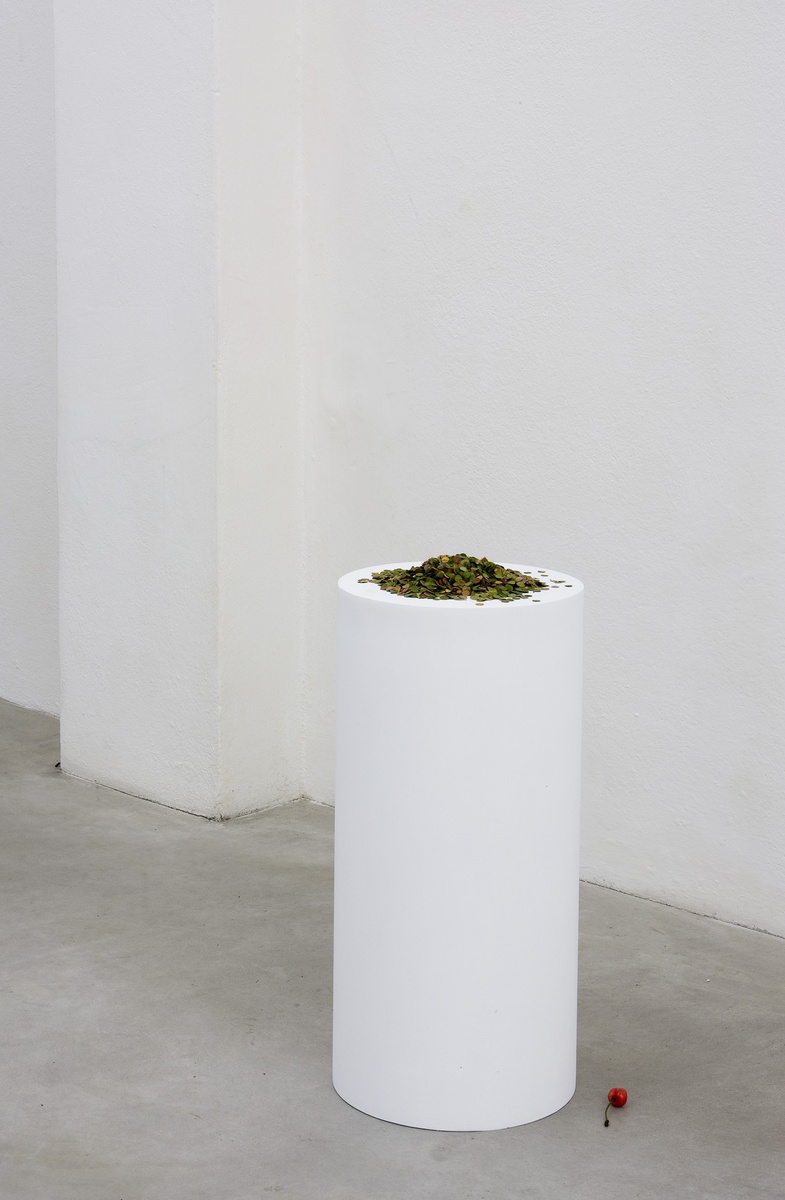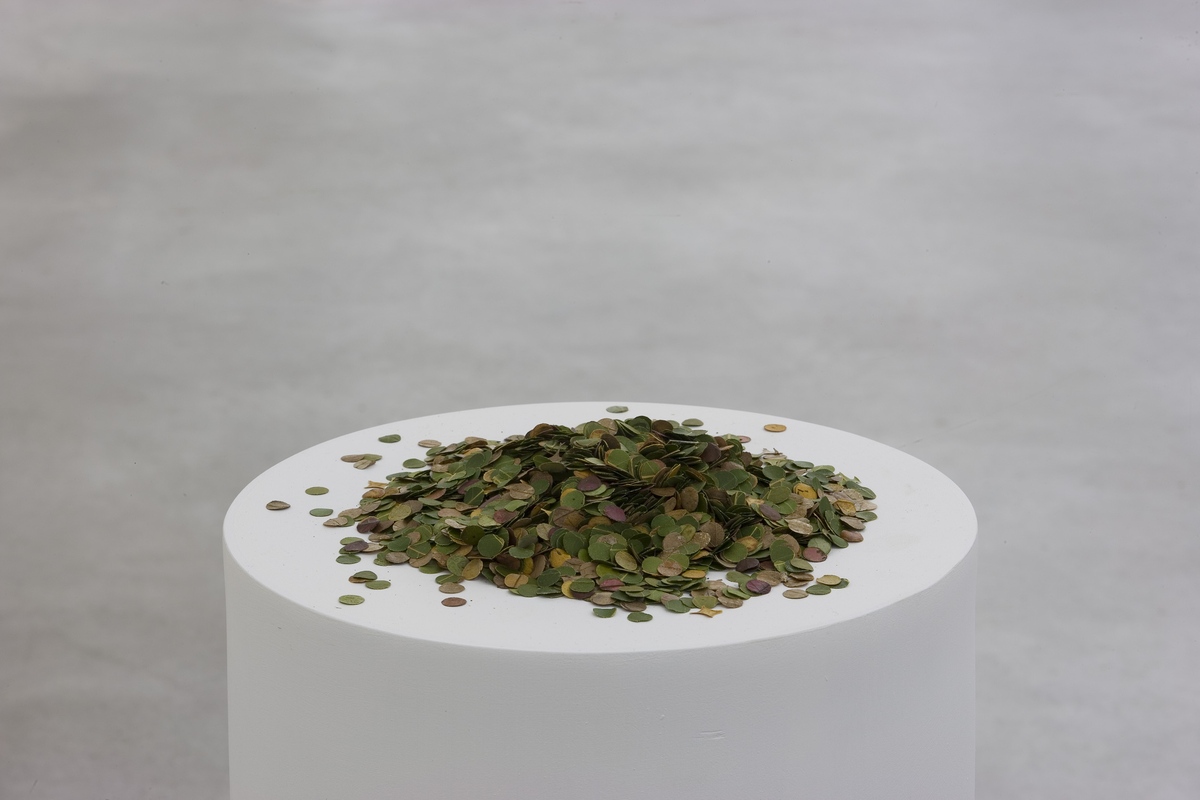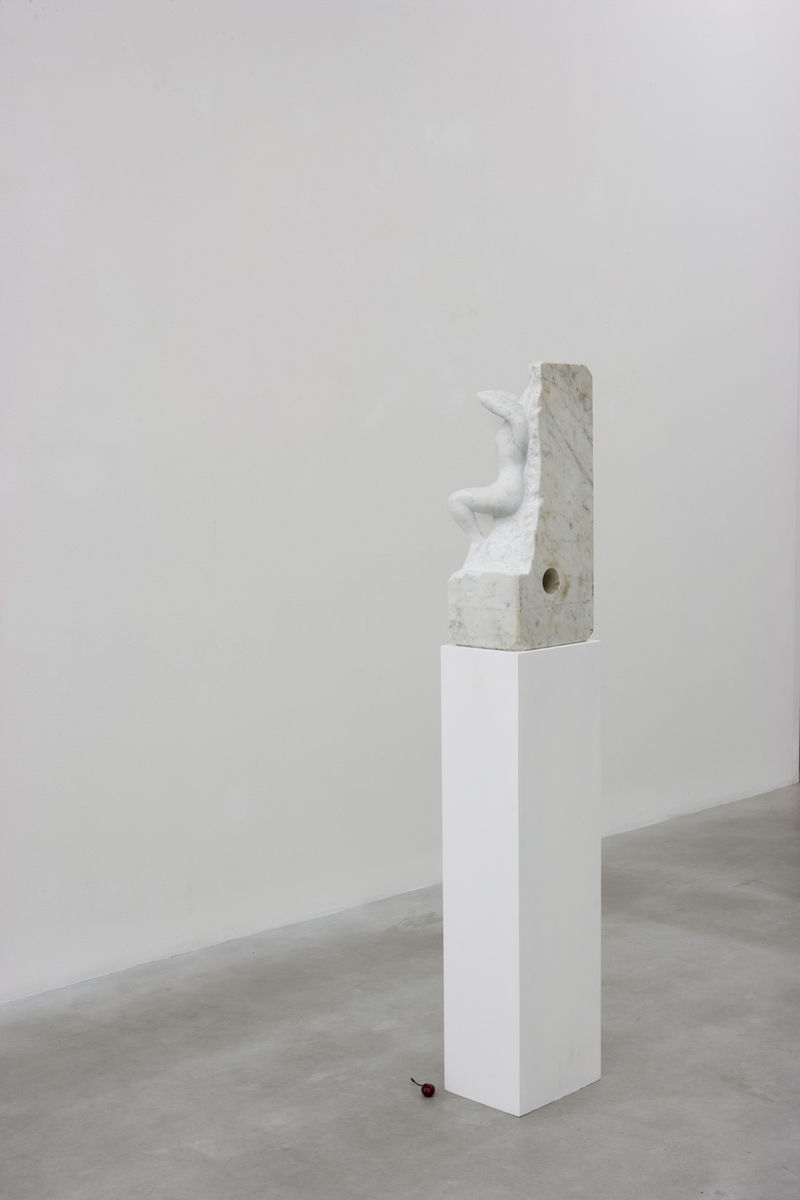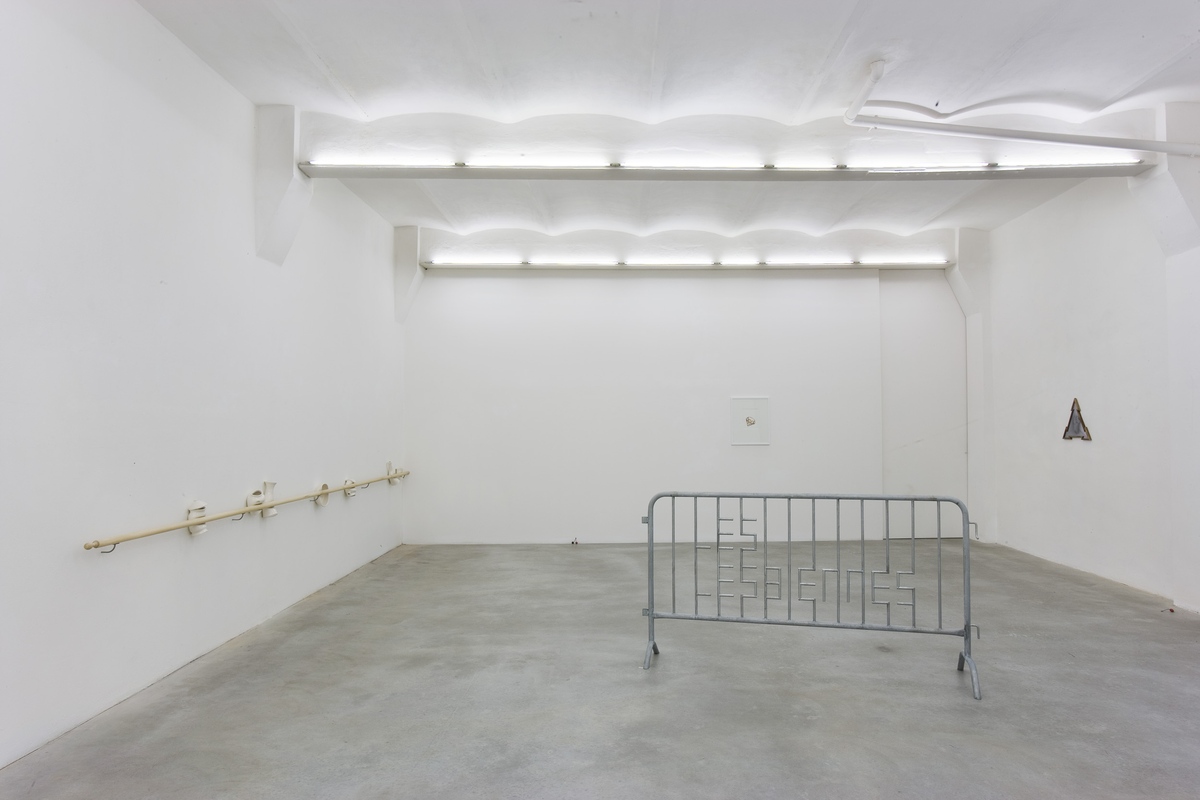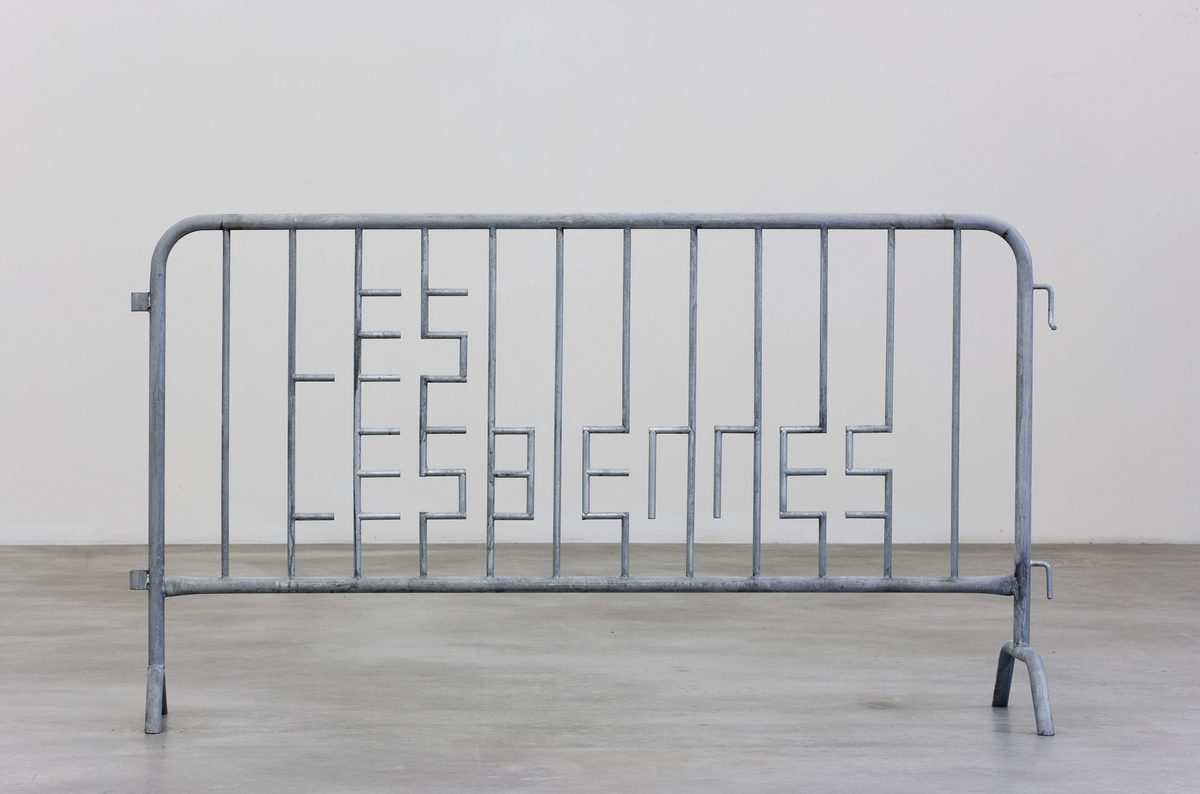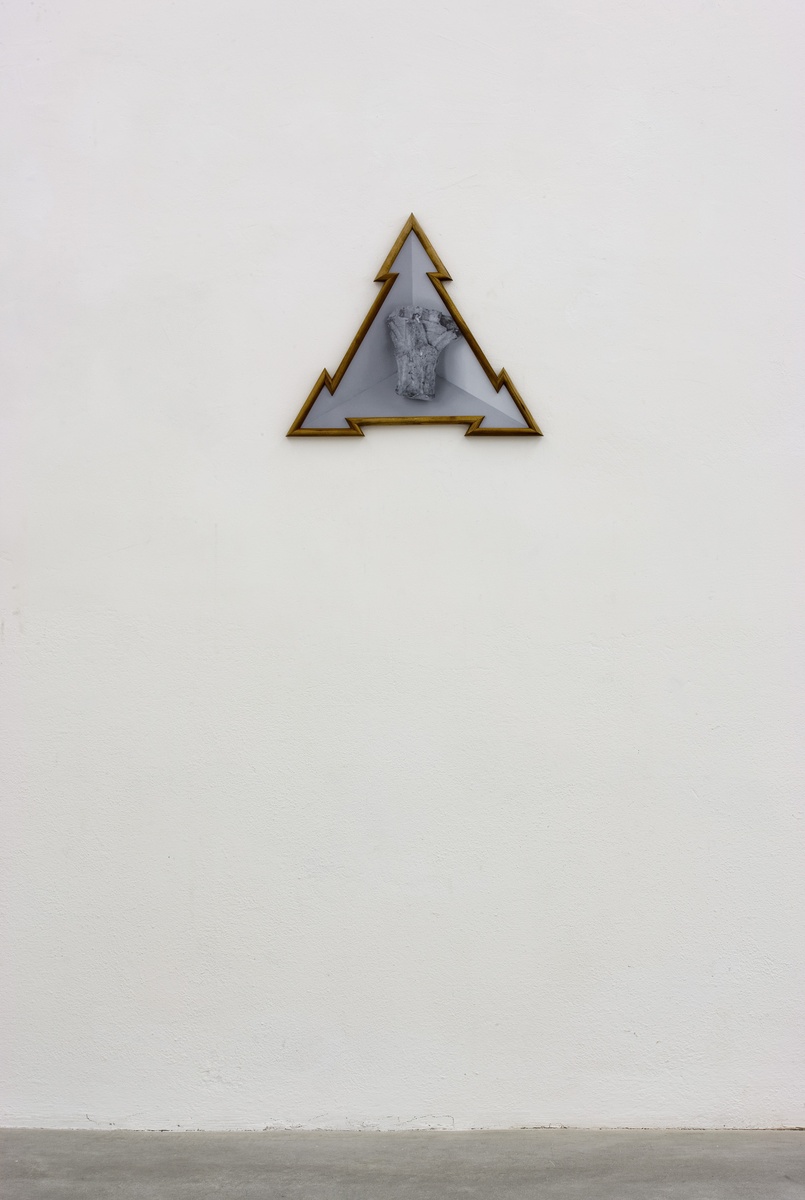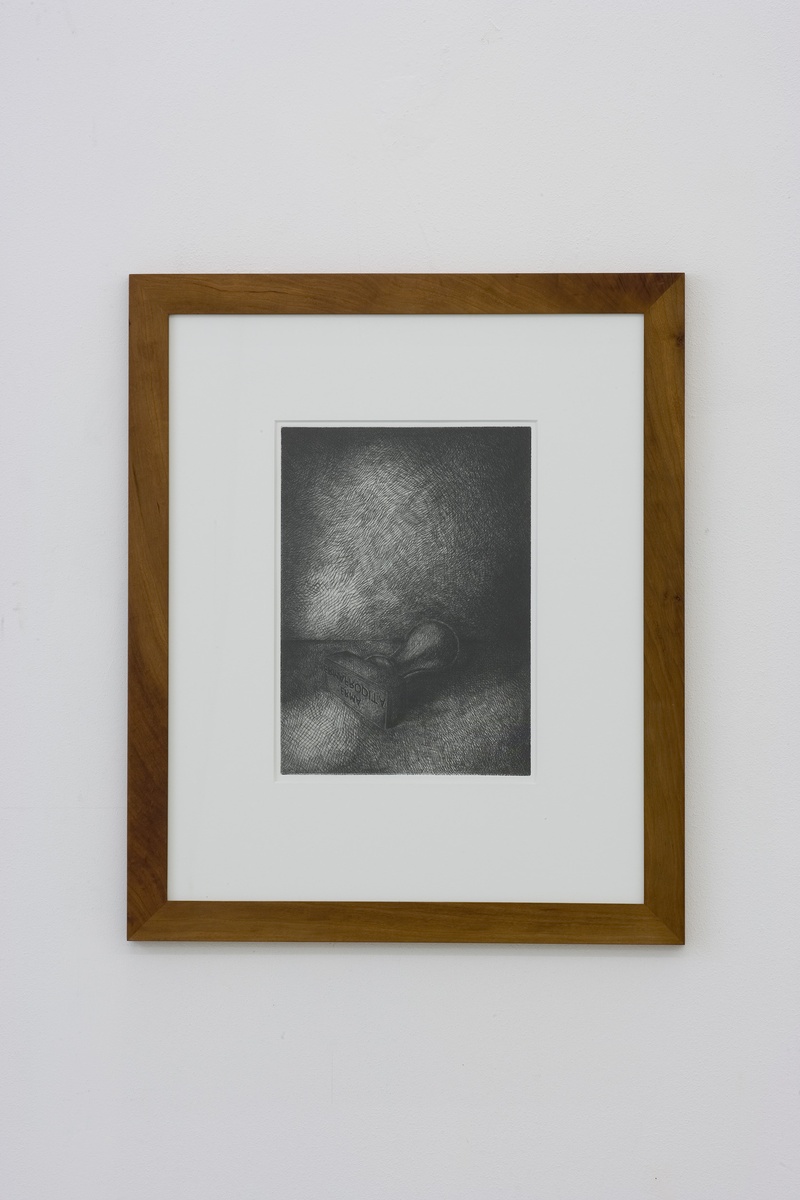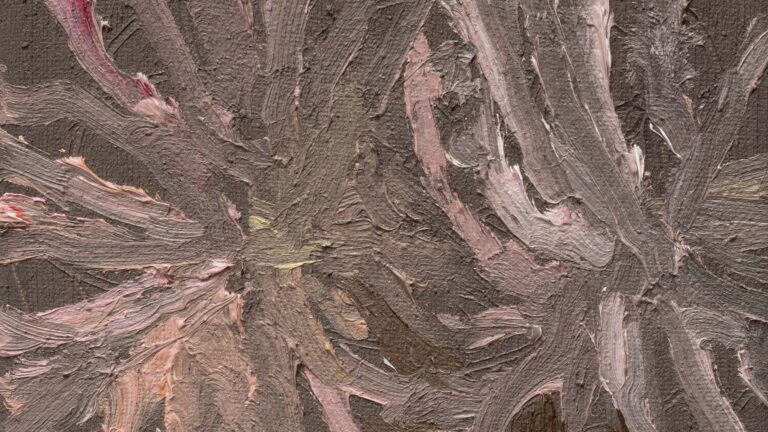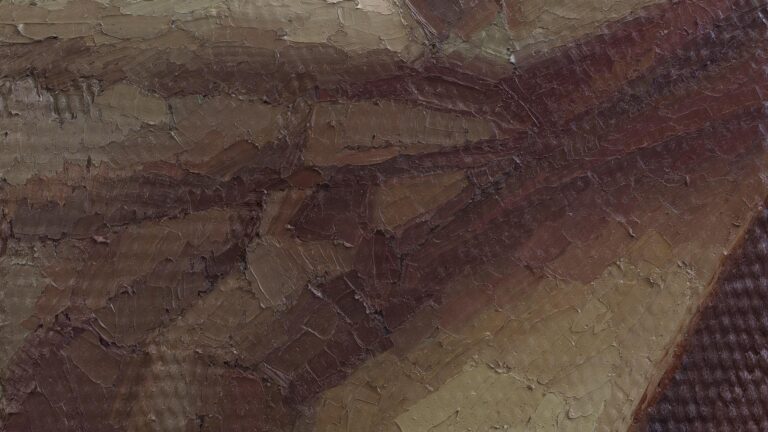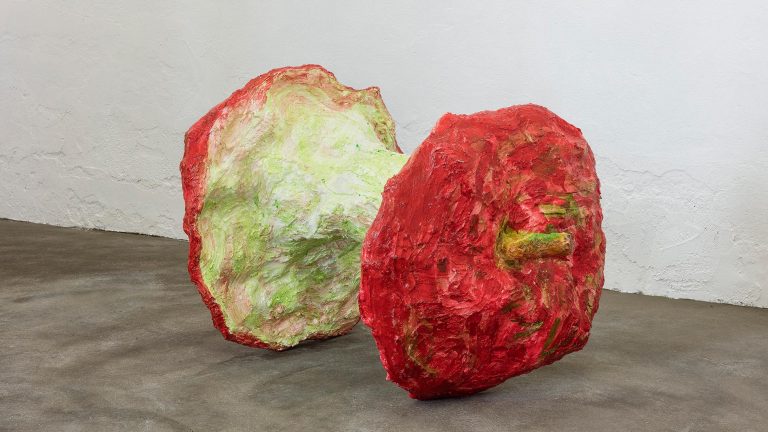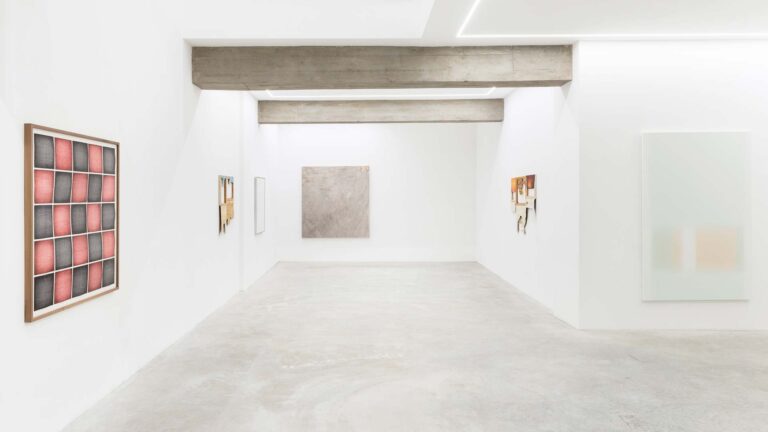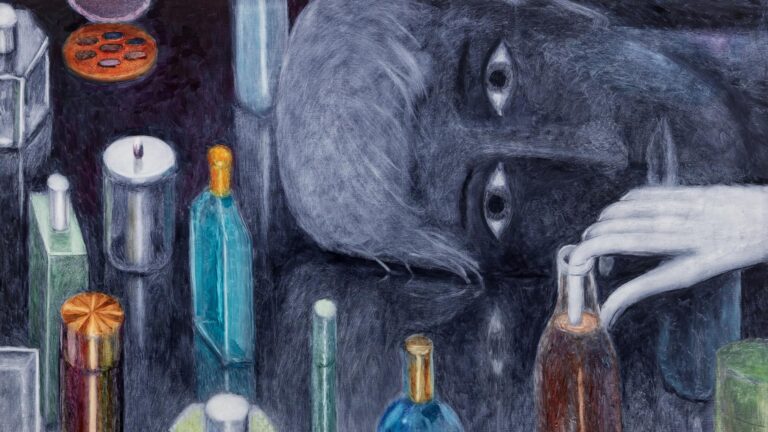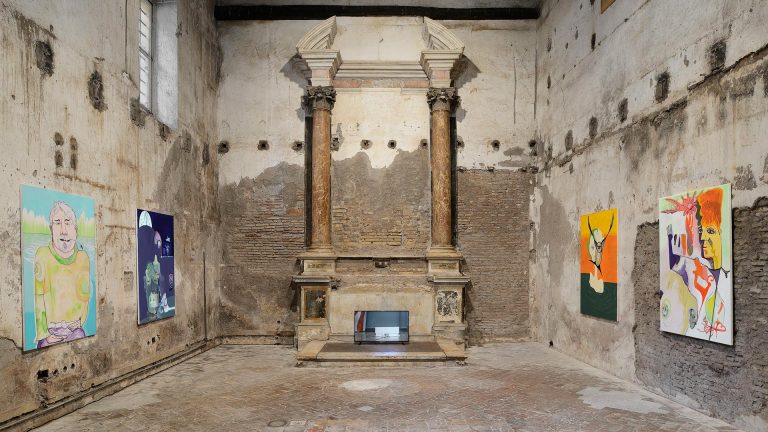Artist: Francesco Carone
Exhibition title: Boudoir
Venue: SpazioA, Pistoia, Italy
Date: April 2 – May 21, 2016
Photography: all images copyright and courtesy of the artist and SpazioA
SpazioA is proud to present on Saturday April 2, 2016, 6 pm, Boudoir, the fourth solo show by Francesco Carone, in Via Amati 13, Pistoia.
Oh Lord, what a lovely room! But why are there all these mirrors?[1]
Boudoir in French literally means «to pout, to be reluctant» and therefore by extension meant a place where one could retreat, far from others, in studied solitude.
The term reached its real fame during the 18th century, however (thanks perhaps to the book La Philosophie dans le boudoir [1], written by the Marquis De Sade in 1795), when it was used to also indicate a woman’s sitting room or dressing chamber attached to the bedroom where she could hold mischievous conversations seated at her dressing table or arrange elegant (and intimate) meetings.
The word’s various shades of meaning prompted its selection as the title of this show and indicate perfectly the will and changing intentions sought by the artist in his latest production.
An eroticism of form and material, a hostility triggered by the uneasiness that certain visions induce at unconscious level is pursued in works of small and medium size. A study in the balance of relationships, in the colors, in the matching of materials and in the many references through which to declare a ‘retirement’ in a new research, perhaps precisely because it is ancient at the same time. A dialogue (without veils, perhaps far from the eyes of the indiscreet) with the Classic and its continuous tension between rational desire and the wish to abandon oneself to beliefs, to idols, myths, legends, or the perversion of thought.
By setting sculptures in marble, ceramic, bronze, and brass (and other materials) alongside rotogravure prints and monotypes, Carone attempts to affirm his conviction that the work of art, even in its apparent formal simplicity, is always the fruit of study and vision but also a previous (and future) story perceptible at extra-sensitive level, and inherent in the subjects selected and above all, in the materials used in its creation.
The ambiguity of functions and a temporal and metaphysical suspension in which everything seems to return to itself or to ourselves, as in a sort of paraphilic practice (and therefore with no reproductive purpose) is perceived through a continuous sliding between reality and sensitive nature in a cycle of works in which our own borders and roles and those of the various subjects present are frayed through continuous allusion.
These bipolar works regard the public bourgeois, aesthetizing sphere in one sense and the other more intimate arcane, visionary, deviant, and poetic world at the same time .
There are labyrinths without turns or emergency exits. Extremely long, continuous corridors where in the absence of certainty the only options available are to continue advancing, to stop and wait, or to go back without any signal that might indicate the truth and justice (intended also as normality and morality) of our procedure.
Because this type of truth is here (and everywhere) inexistent.
Francesco Carone was born in 1975 in Siena, where he lives and works today. He is the creator of the art projects entitled Tempozulu and Titolo-l’edito inedito – and the co-founder of Museo d’Inverno in Siena, of which he is the co-director together with Eugenia Vanni as of this year.
Among the solo and group shows he has taken part recently there are: Ri-pensare il medium: il fantasma del disegno,curated by Cristiana Collu and Saretto Cincinelli, Centro per l’Arte Contemporanea Casa Masaccio, San G.Valdarno, Arezzo; La sottile linea del tempo, curated by Marinella Paderni, Fondazione Museo Miniscalchi-Erizzo, Verona; Rendezvous des amis, curated by Marinella Paderni, Museo Civico, Siena; Contemporary locus 1, curated by P. Tognon, Luogo Pio della Pietà, Istituto Bartolomeo Colleoni, Bergamo; Brightlight / Darklight curated by Ludovico Pratesi e Valentina Ciarallo, American Academy, Roma; Horror vacui, EX3 Centro per l’Arte Contemporanea, Firenze.
Francesco Carone, Menadi, 2016
Francesco Carone, Menadi, 2016
Francesco Carone, Adoratore, 2016
Francesco Carone, Erma Ermafrodita, 2016
Francesco Carone, Estasi (Trans Transverberazione), 2016
Francesco Carone, Comasti, 2015
Francesco Carone, Comasti, 2015 (detail)
Francesco Carone, Les Lesbiennes, 2016
Francesco Carone, Voyeur, 2016
Francesco Carone, Fantasma, 2016
Francesco Carone, Scilla e Cariddi, 2016
Francesco Carone, Contorsione (Ermo), 2016

